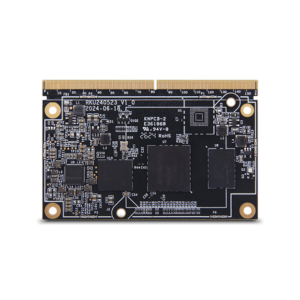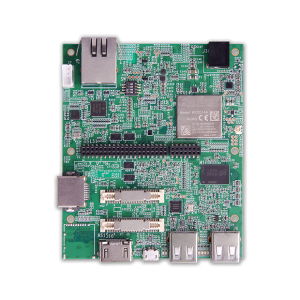Maximizing Efficiency in Embedded Systems with Computer-on-Modules
Maximizing Efficiency in Embedded Systems with Computer-on-Modules
Blog Article
A Deep Dive into Computer-on-Modules: Powering the Next Generation of Edge Devices
In today's fast-paced technical landscape, organizations and developers are significantly looking at modular options to meet the ever-growing demands of high-performance applications. One such answer gaining footing is the usage of computer on module. These small, self-contained systems are packed with all the crucial aspects of some type of computer, including the model, storage, storage, and connectivity interfaces, all integrated into a single unit. In this informative article, we discover why Computer-on-Modules are becoming a go-to selection for scalable, high-performance applications across numerous industries.

1. Small Design and Integration
One of the main benefits of COMs is their compact type factor. These adventures are designed to combine all important aspects of a computer, lowering the need for numerous distinct components and which makes it easier to create lightweight, space-efficient systems. This integration permits designers to create powerful answers without compromising the general size of the conclusion item, which is particularly valuable in industries such as for example stuck systems, IoT devices, and industrial automation.
2. Scalability for Varied Applications
Scalability is a crucial factor for modern purposes, specially in groups like telecommunications, automotive, and edge computing. With Computer-on-Modules, organizations can very quickly degree up or down with regards to the unique efficiency and reference needs of these projects. For instance, a company making a benefit research answer can start with an element that fits basic wants and then update to better adventures while the workload or control needs grow. That adaptability enables organizations to future-proof their investments and arrange equipment with growing performance demands.
3. High-Performance Processing
Several high-performance purposes need a strong computational backbone to handle demanding projects such as for example real-time data handling, movie analytics, or equipment learning. COMs are generally made with strong processors, high-speed interfaces, and ample memory, making them effective at giving the large throughput and low-latency performance required for these applications. Moreover, their power to support the latest processor architectures ensures that techniques can remain at the front of efficiency benchmarks.
4. Cost Effectiveness and Time Savings
Yet another significant advantage of using Computer-on-Modules is cost efficiency. Because the adventures come pre-integrated with important parts, developers save both time and assets that could usually be spent on developing, screening, and building specific components. This will lead to paid down growth cycles and a faster time-to-market for products and services, which is essential in aggressive industries. Furthermore, because the equipment components are standardized, the danger of incompatibility is reduced, ultimately causing simpler progress processes and decrease engineering costs.
5. Variable Customization
While COMs give you a high degree of integration, they're also designed for flexibility. Several COMs have various alternatives for I/O interfaces, storage designs, and power management options, allowing developers to target the component to the particular wants of these application. This usefulness is very valuable in industries where modification is important, such as for instance medical units, robotics, and automotive applications.

Realization
In conclusion, Computer-on-Modules provide numerous benefits for businesses and developers looking to create scalable, high-performance solutions. Their compact style, scalability, powerful control abilities, cost-efficiency, and modification alternatives cause them to become a perfect selection for a wide range of applications. As industries continue steadily to evolve and need more powerful, variable options, COMs may certainly play a pivotal role in surrounding the future of technology. Report this page